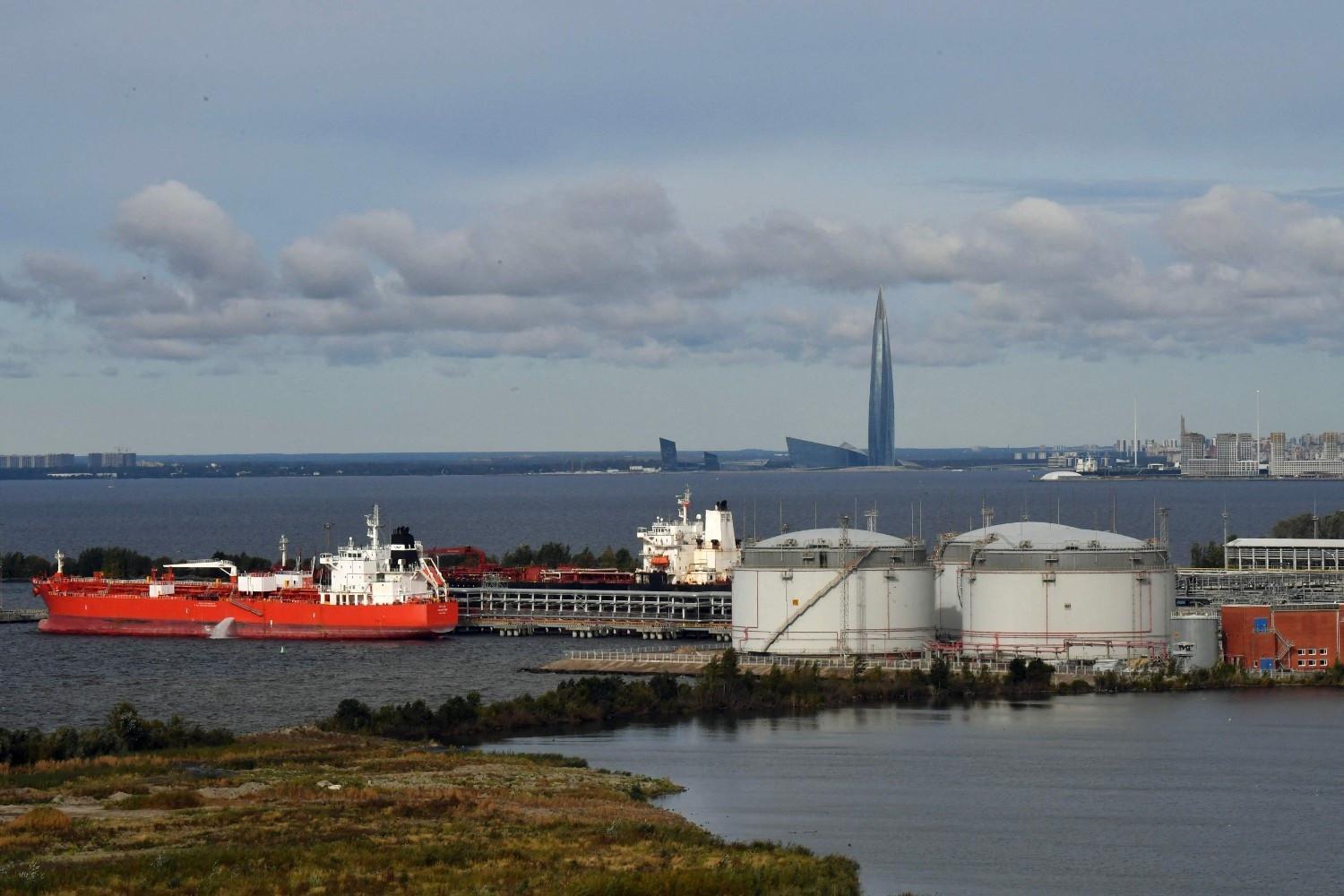
This photograph shows a general view of the oil terminal, in the port with the Lakhta skyscraper on the background (CR), in Saint Petersbur, on Sept., 26, 2025. (Photo by Olga MALTSEVA / AFP)
G7 finance ministers pledged Wednesday to take aim at those who are continuing to step up purchases of Russian oil, since Moscow's invasion of Ukraine more than three years ago.
In a statement after a virtual meeting, officials from the Group of Seven advanced economies — Britain, Canada, France, Germany, Italy, Japan and the United States — agreed that it is time to "maximize pressure on Russia's oil exports."
This would hit at revenue Moscow needs for the war.
"We will target those who are continuing to increase their purchase of Russian oil since the invasion of Ukraine and those that are facilitating circumvention," the ministers said in a joint statement.
They added that they agreed on "the importance of trade measures, including tariffs" and import or export bans in efforts to cut off Russian revenues.
The countries are also giving "serious consideration to trade measures and other restrictions on countries and entities that are helping finance Russia's war efforts, including on refined products sourced from Russian oil."
The statement came after the United States indicated last month that it was ready to broaden tariffs targeting buyers of Russian oil if the European Union takes similar moves.
President Donald Trump, who dialed in to talks between the United States and EU officials, had raised the possibility of tariffs between 50 percent and 100 percent targeting oil buyers like China and India, according to an official.
In September, the European Commission also said that it was working on potentially imposing tariffs on imports of Russian oil into the bloc, in the face of pressure from Trump.
The U.S. leader has demanded that Europe end energy imports from Moscow before agreeing to move forward with sanctions against Russia.
The G7 ministers plan to meet again on the sidelines of the annual meetings of the International Monetary Fund and World Bank in Washington this month.
EU leaders vow to strengthen defense cooperation with Ukraine
Also yesterday, EU leaders have pledged to step up defense cooperation with Ukraine, warning that Russia’s intensifying attacks pose a growing threat to the continent.
Speaking at a joint press conference, European Council President Antonio Costa said the bloc’s next summit on Oct. 23-24 would be “decision day.”
“In two weeks, the European Commission will present the roadmap on 2030 defense readiness, and the European Council will meet again in three weeks, and that will be decision time,” Costa told reporters.
Danish Prime Minister Mette Frederiksen warned that Russia was “threatening us, testing us, and they will not stop,” stressing the need for greater backing for Kiev.
“First of all, we have to step up our financial support for Ukraine,” she said. “Everybody knows now what is at stake…our main goal is to build a Europe so strong that war is simply not an option.”
One of the most debated issues has been European Commission President Ursula von der Leyen’s proposed “drone wall” designed to counter the growing use of unmanned aircraft in warfare.
She expressed solidarity with EU member states whose airspace has been violated, including Poland, Romania, Estonia and, most recently, Denmark.
Von der Leyen also said a “surge in investment” in European defense was already underway, citing a €150 billion ($176 billion) program known as the Security Action for Europe (SAFE) instrument.
“Now we need a precise Pan-European plan how to fill the capability gaps and how to move forward,” she added.